On assignment as an NGO videographer for UNICEF in Stung Treng
I’d worked as an NGO videographer on a Generation Future video for UNICEF a couple of years ago, so it’s always good to get the call to come back and make a follow up video to show how the programme has progressed / evolved.
We filmed the last video in Siem Reap Province. This time the location was Stung Treng Province with a focus on female empowerment and getting more girls involved in STEM subjects (Science, technology, engineering, and mathematics.
This area where girls are underrepresented. They can also face barriers when trying to study STEM subjects.
Four Generation Future projects, Code for Girls, Cyclo Day, Meakea and RULErs, ran workshops to recruit and train 48 student volunteers from 4 schools in Stung Treng Province. All the groups featured female trainers and female student volunteers.
‘Code For Girls is a project that encourages girls to learn about coding and engineering,
which are both STEM subjects,’ says Sereny, the Code for Girls project leader.
‘We want them to use coding and 3D printing to come up with solutions to solve everyday problems,’ she adds.
‘I really enjoyed learning how to draw 2D and 3D models. I’ve never done this before,’ says Sovy, one of the student volunteers.
‘I've learnt a lot of new skills and gained a lot of new knowledge,’ she adds.
‘I’d like to see all Cambodian girls being confident and assured in the decisions they make,’ she concludes, which is a sentiment we can all agree with.
It was great working with the future generation of trainers and volunteers. Living in a country with such a young demographic, it’s essential that the younger generation, especially girls, learn leaderships skills and demand a voice in the decision-making process.
You can see the last video I made for Genreation Future here and more examples of my NGO videography work here.
Please don’t hesitate to get in touch if you have an NGO videography you would like to discuss.
In the Field - NGO Photography for FELM's Mushroom Cultivation Initiative, Ratanikiri, Cambodia
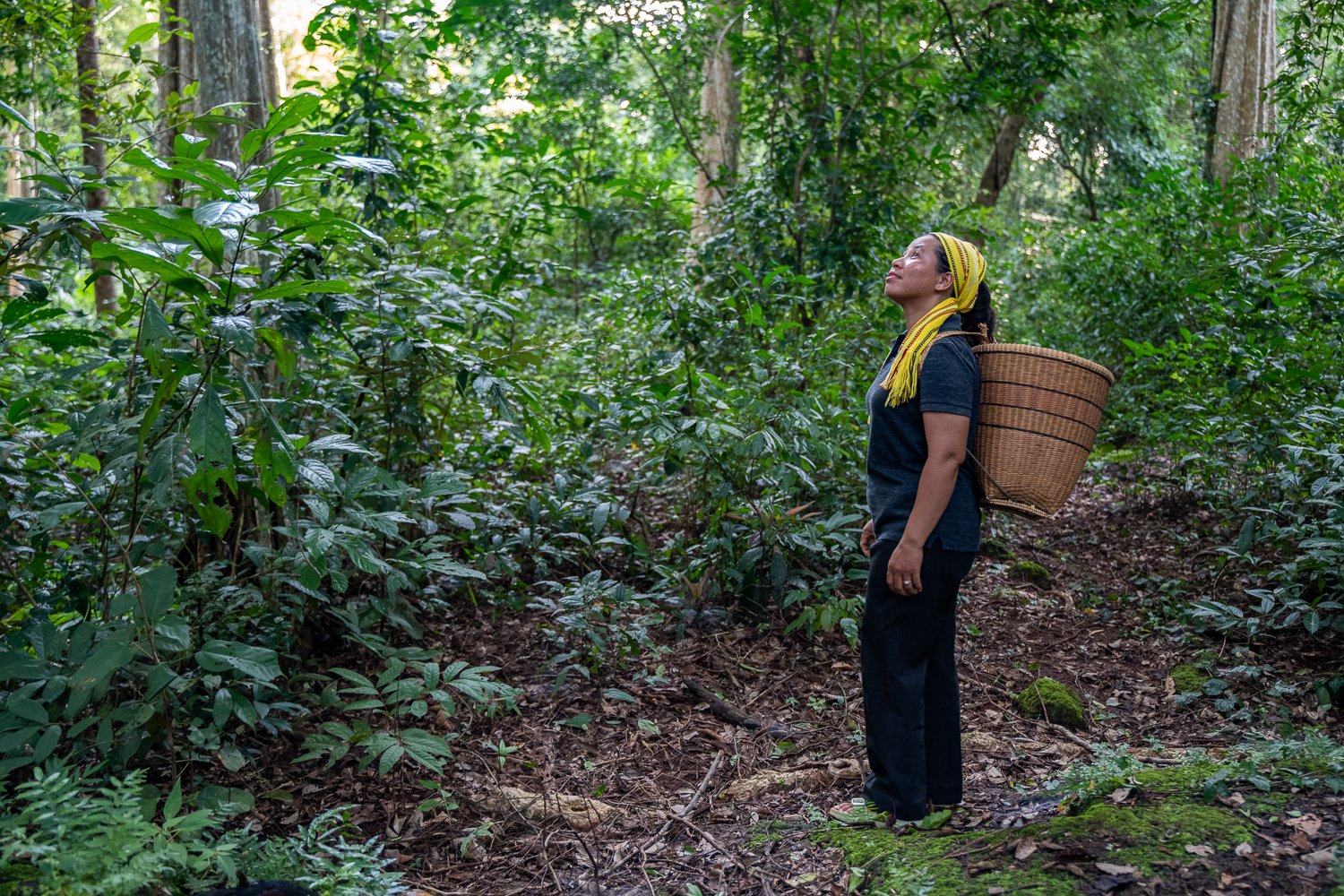
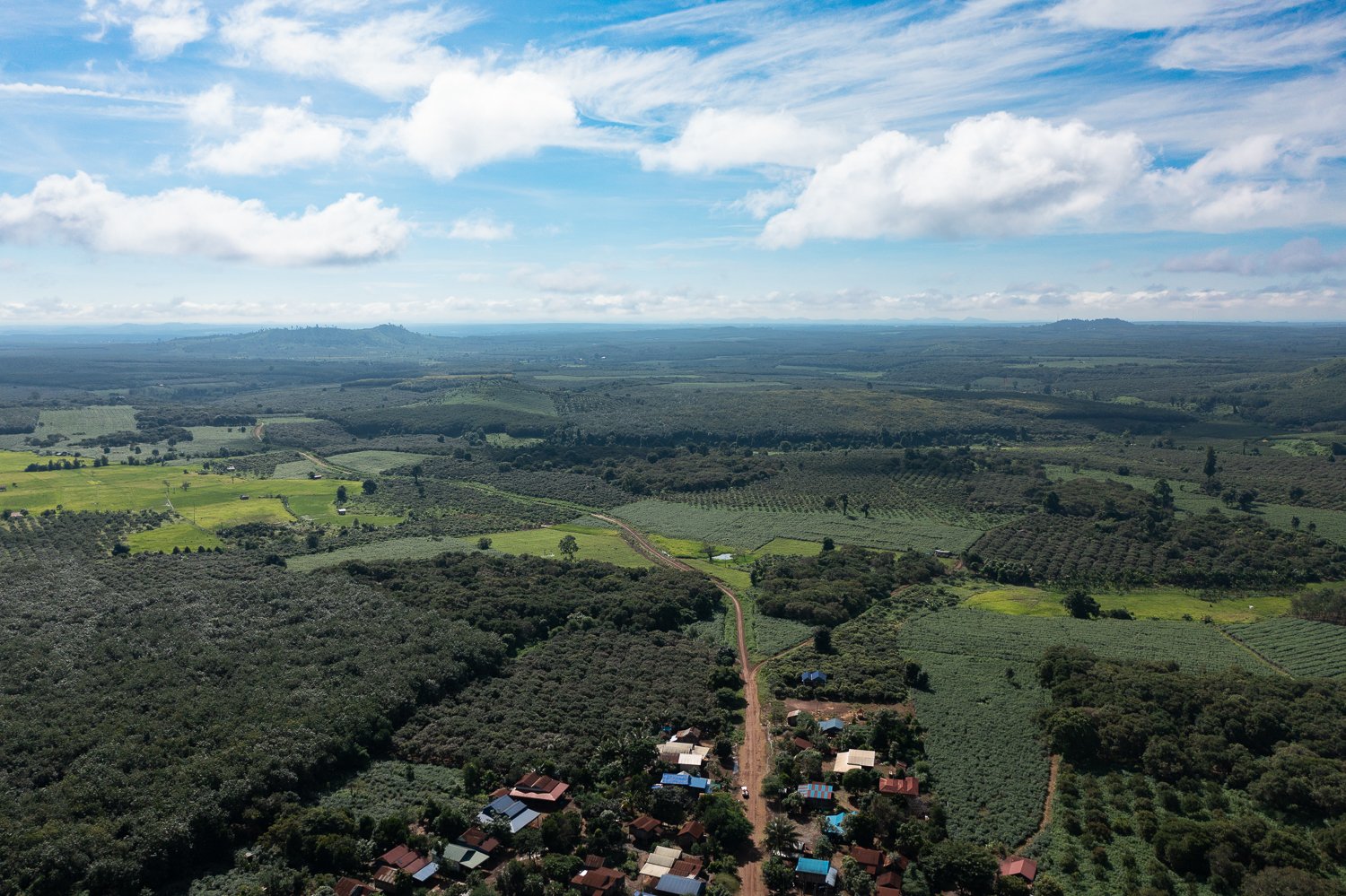
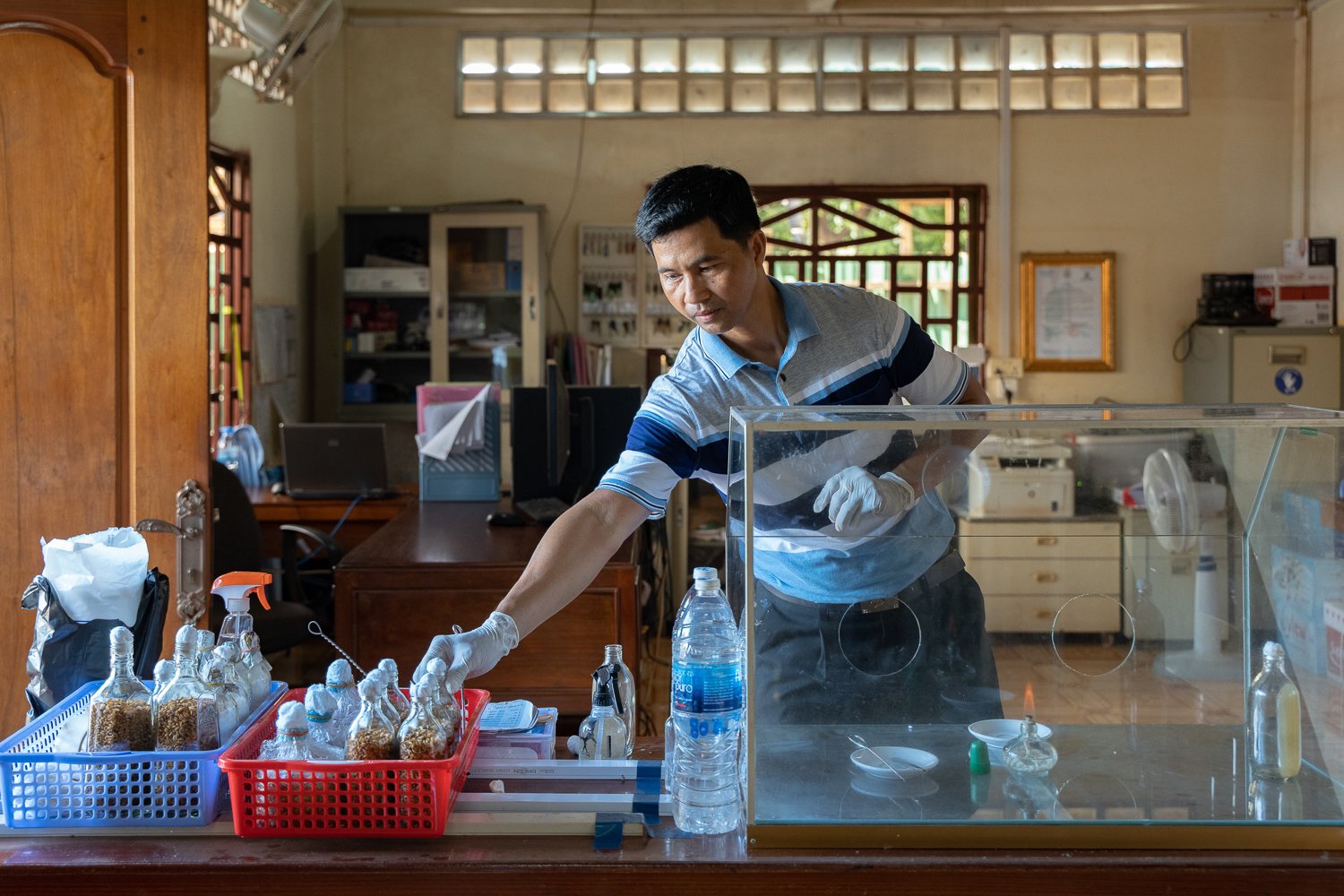
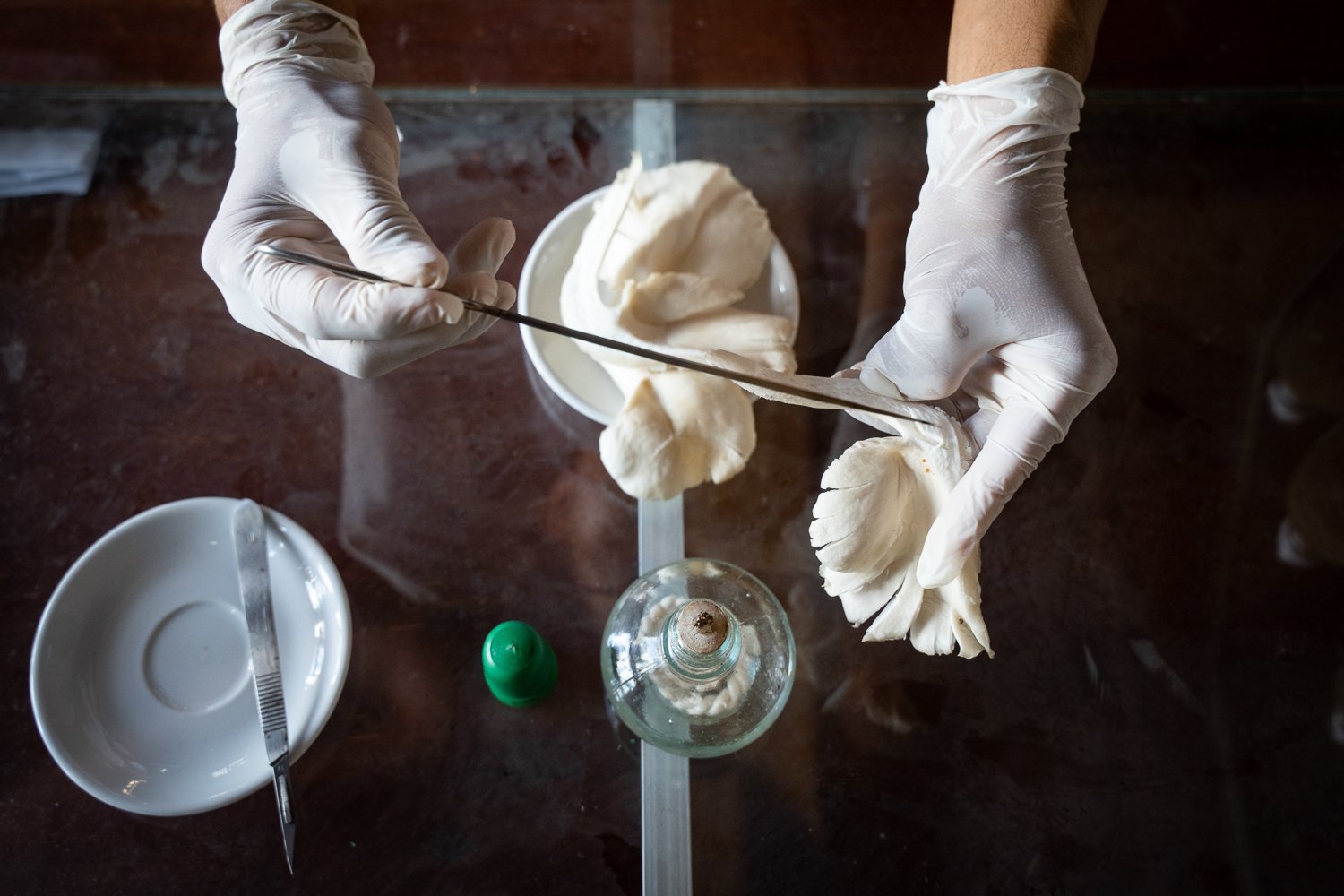
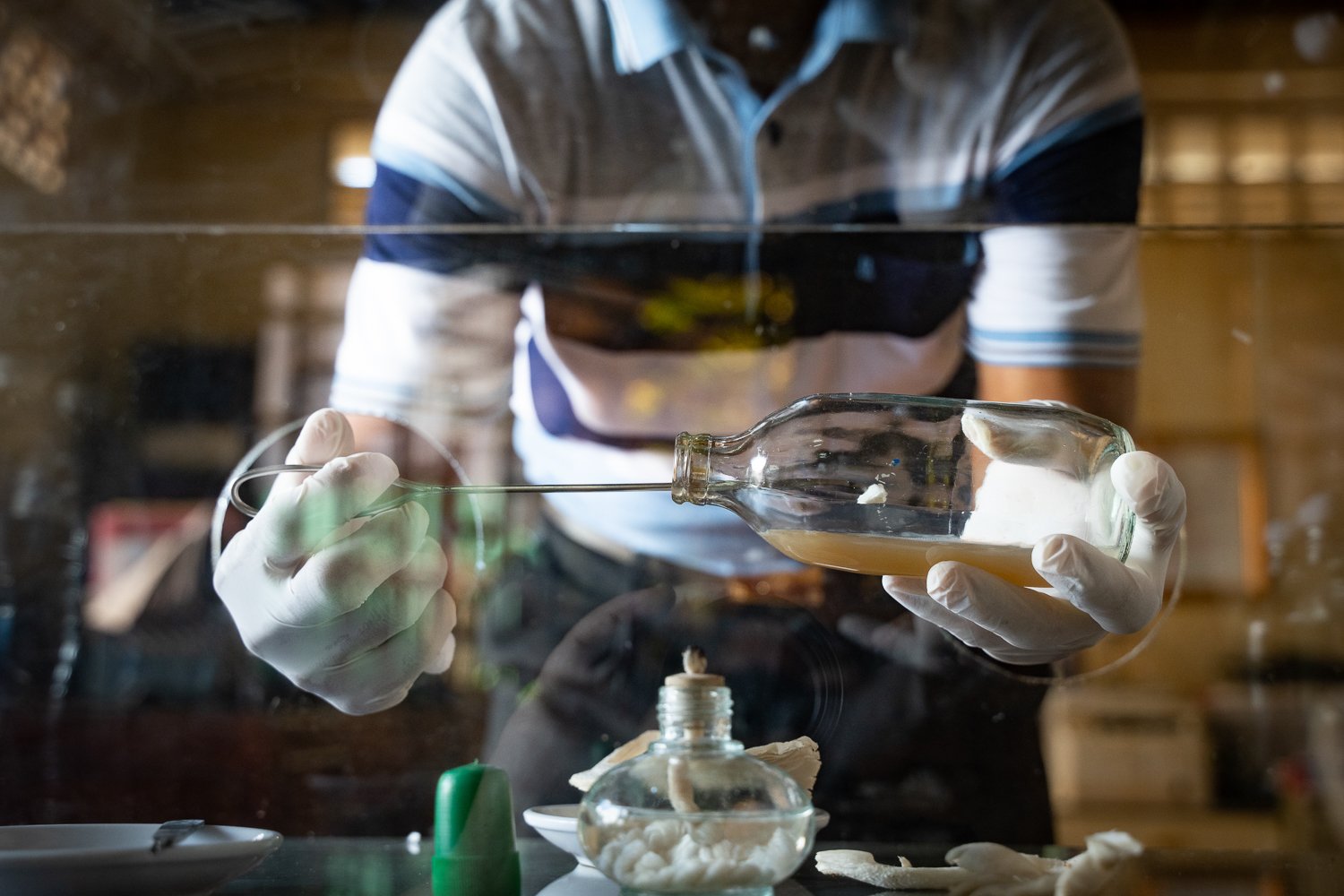
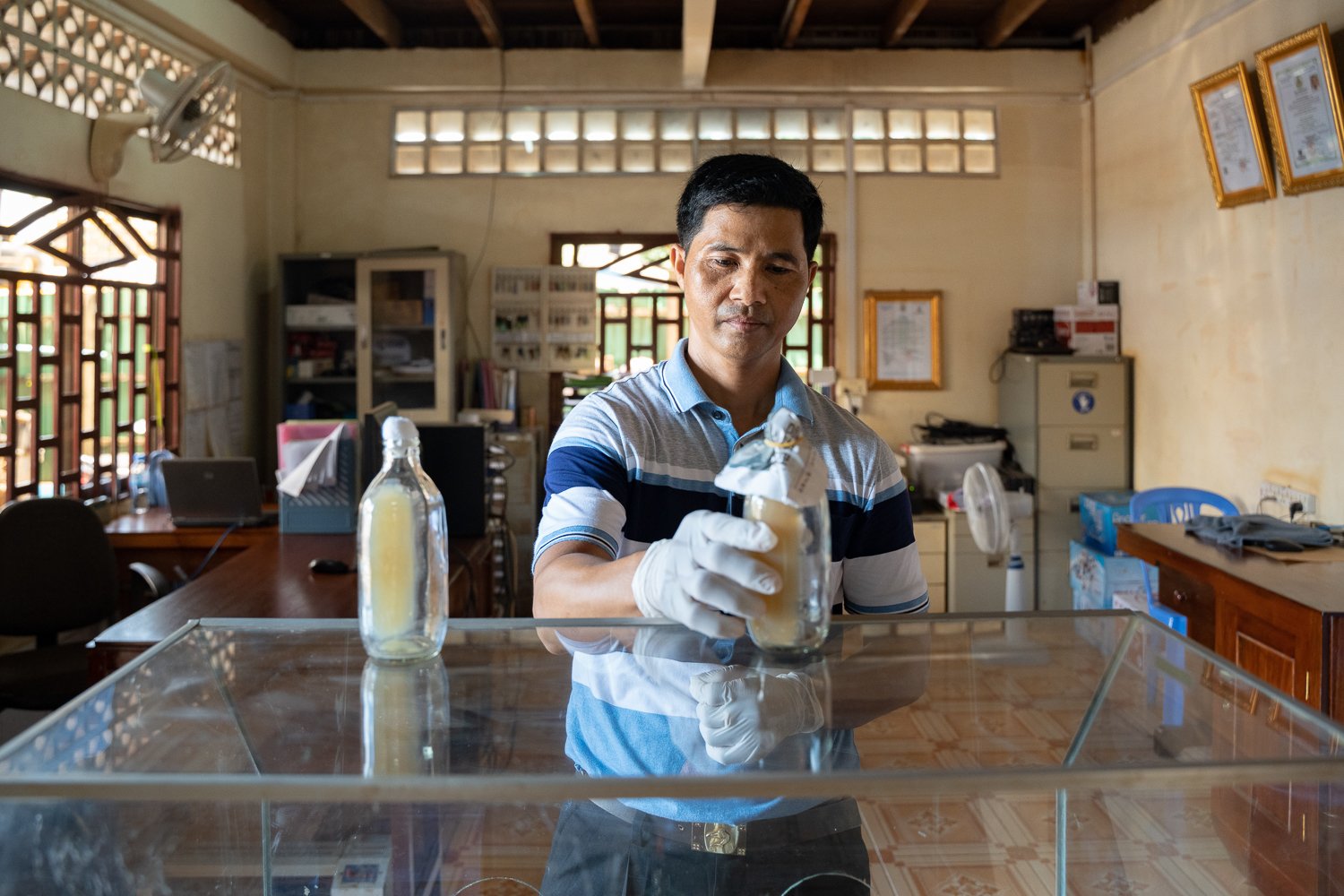
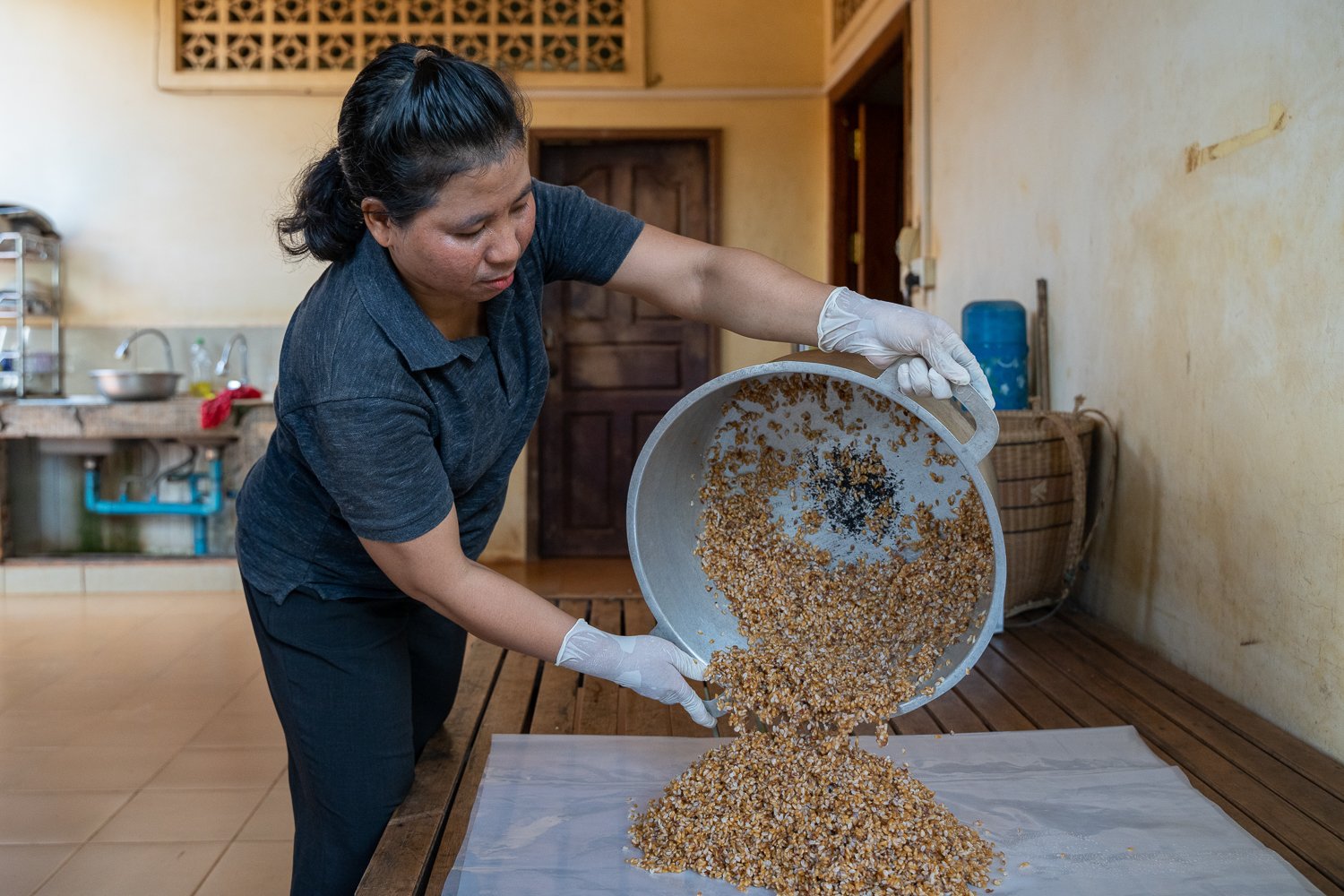
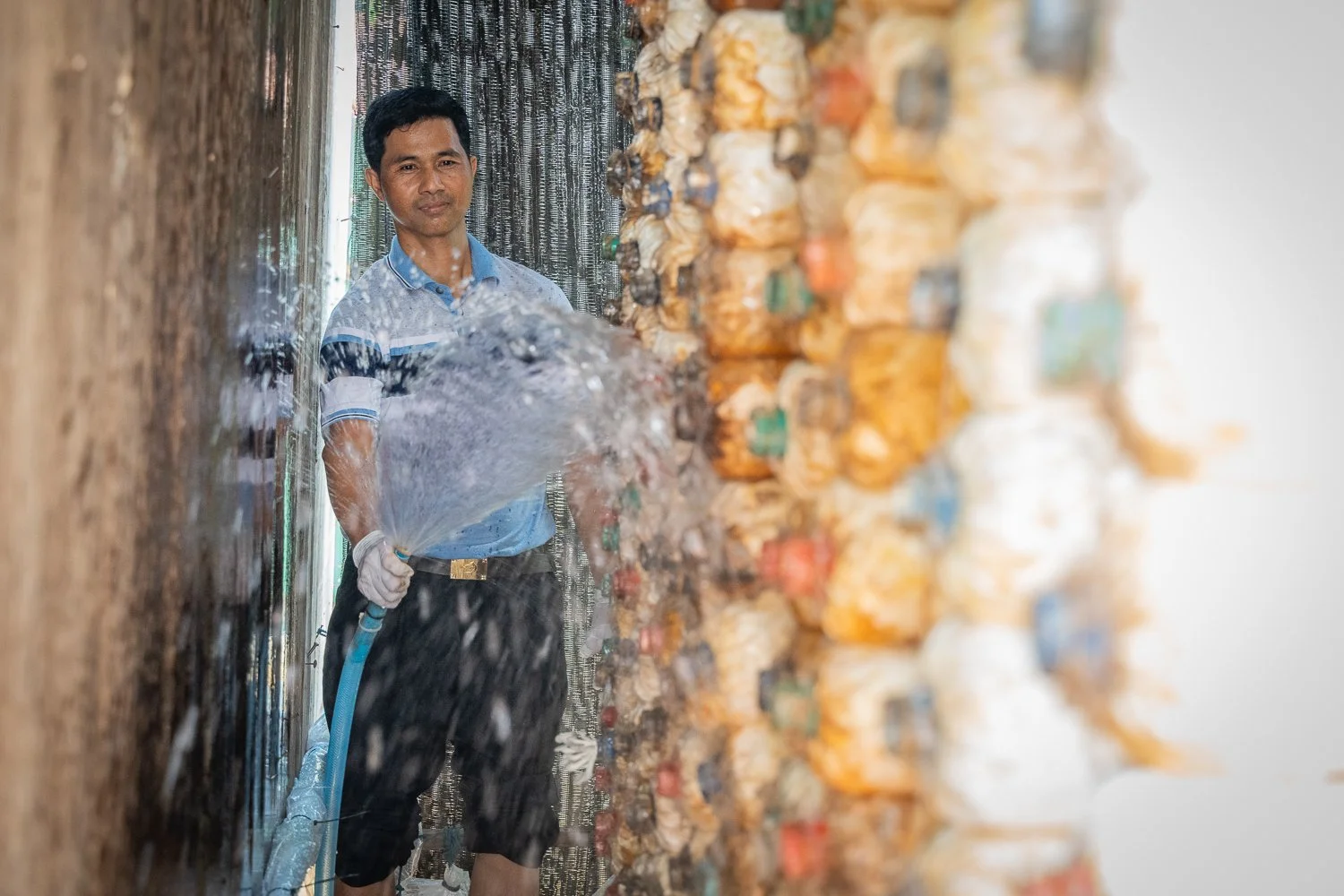
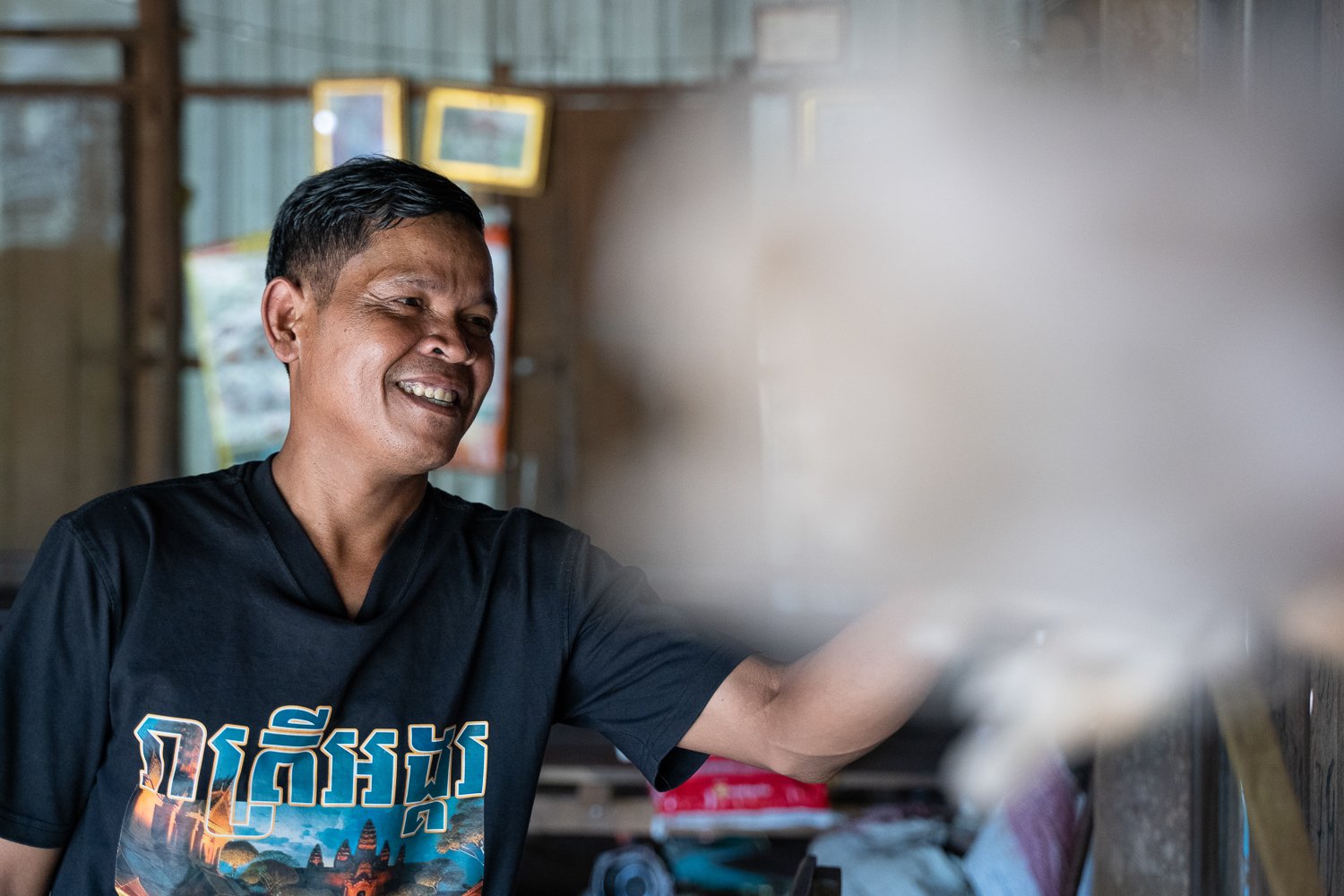
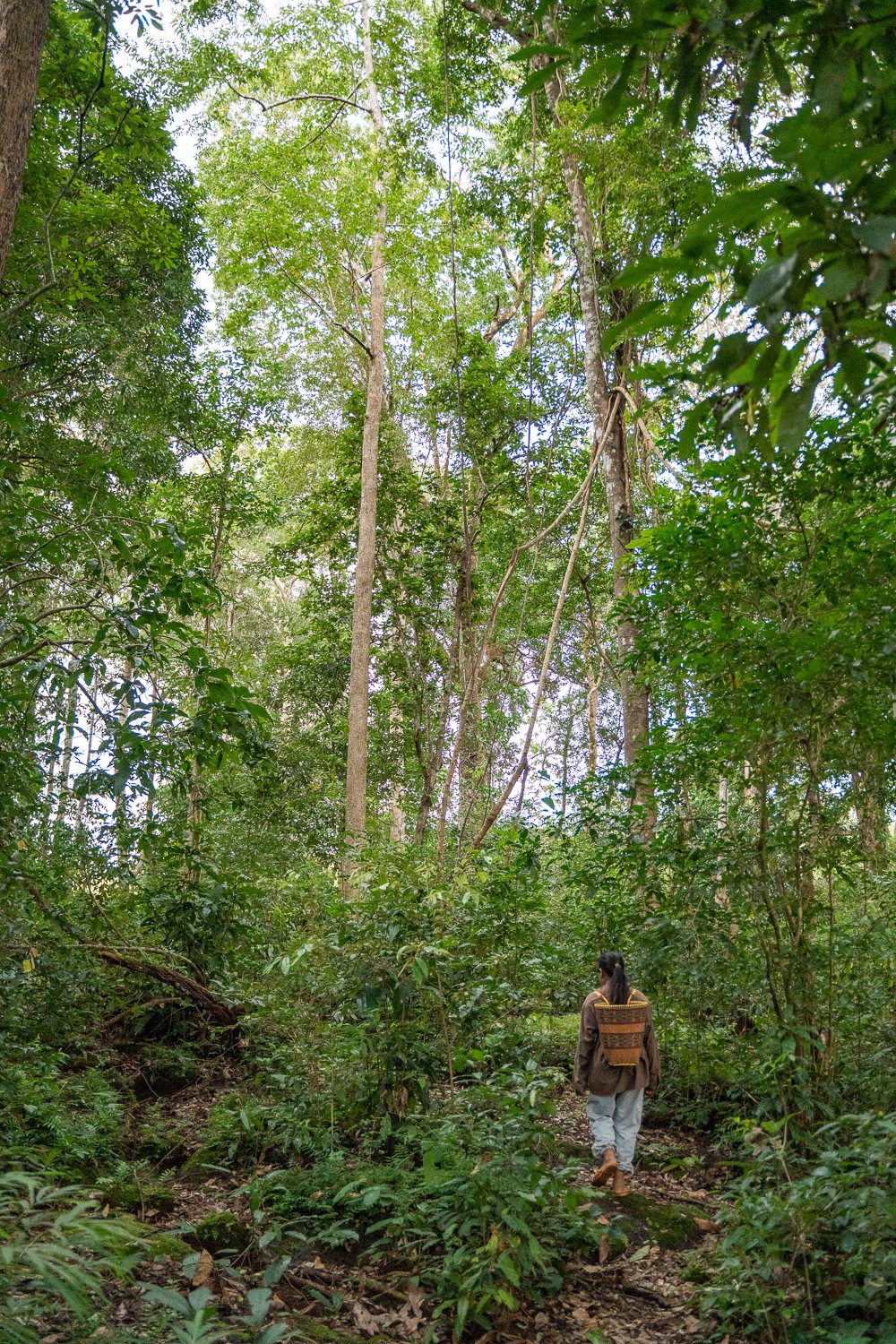
Spending time in the forests of Ratanikiri bought back memories of the extended periods I spent in the forests of Mondulkiri for Last of the Elephant Men.
Then I was working as a director, camera operator and Steadicam operator, this time I’d been assigned as an NGO photographer to document FELM’s mushroom cultivation programme.
FELM, a Finnish NGO, identify partners in the countries they work in and supports them in implementing their projects.
The implementing partner for this one is Integral Cooperation Cambodia, a Phnom Penh based NGO with an office in Banlung.
I arrived at their office to photograph the mushroom cultivation process.
I’m not entirely clear on all the steps, but Nin Samreth, the team leader on the Climate Resilient and Sustainable Indigenous Livelihoods-project, led me through the process while I took photographs of the process and portraits.
Sorl Nhoy, a project officer on the Climate Resilient and Sustainable Indigenous Livelihoods-project, also lent a helping hand. She showed me various parts of the process while I got on with my work as an NGO photographer.
Essentially, they put mushroom culture into sterilised bottles full of straw. The mushrooms then propagate before they can be transported to indigenous communities where they grow them in wall gardens.
After seeing the process at the office, we took a short ride out of town where I photographed Pun Savy at his house where he grows mushrooms.
The visit was rounded off with Pun Sayy taking a basket of mushroom round to his neighbour’s house where they prepared soup.
It’s increasingly important for indigenous people to have alternative food sources as the land they have to farm is getting smaller and climate change is making food production increasingly unpredictable.
You can see other examples of the NGO photography work here.
On Assignment - Photographing Malaria Prevention for WHO, Stung Treng, Cambodia
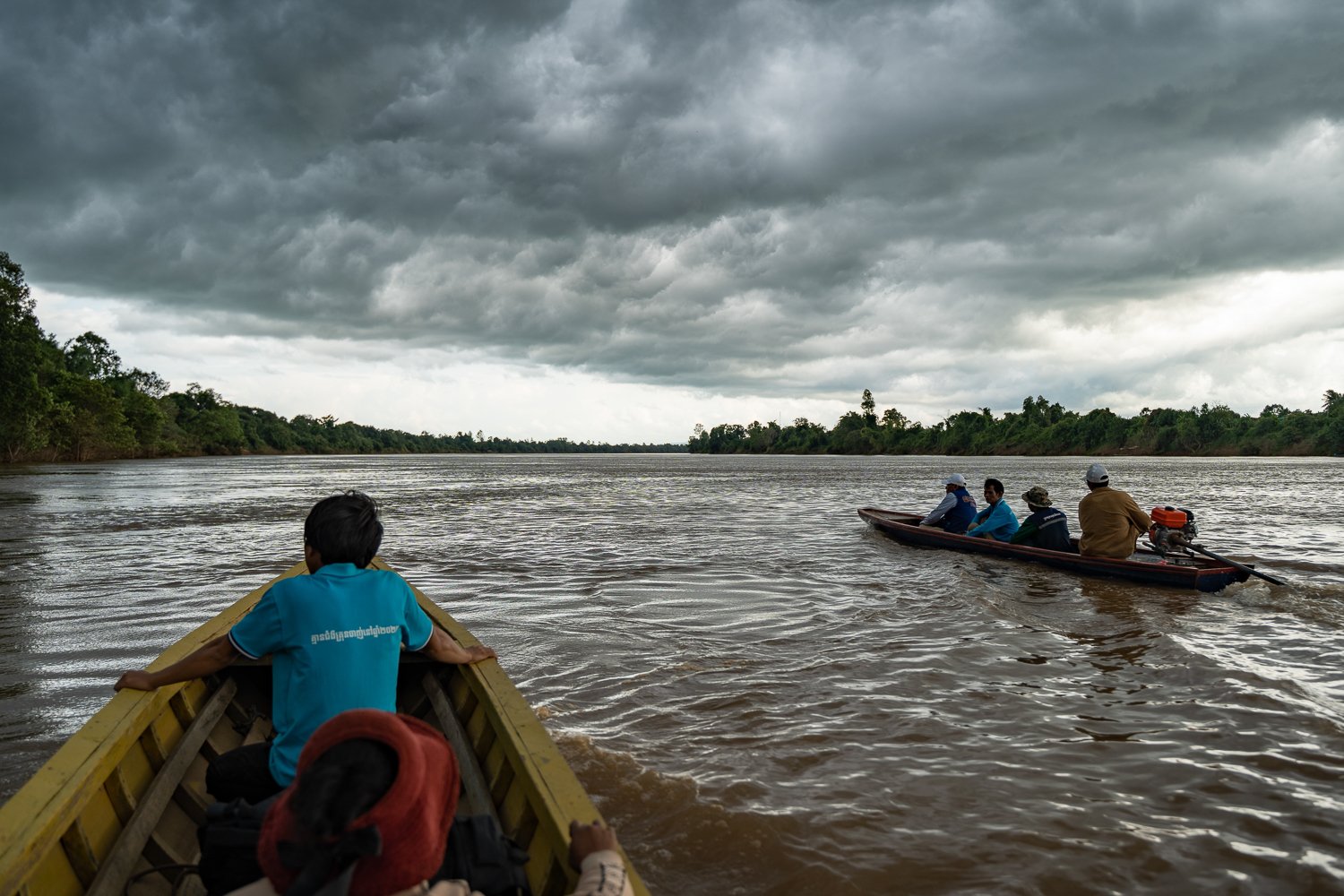
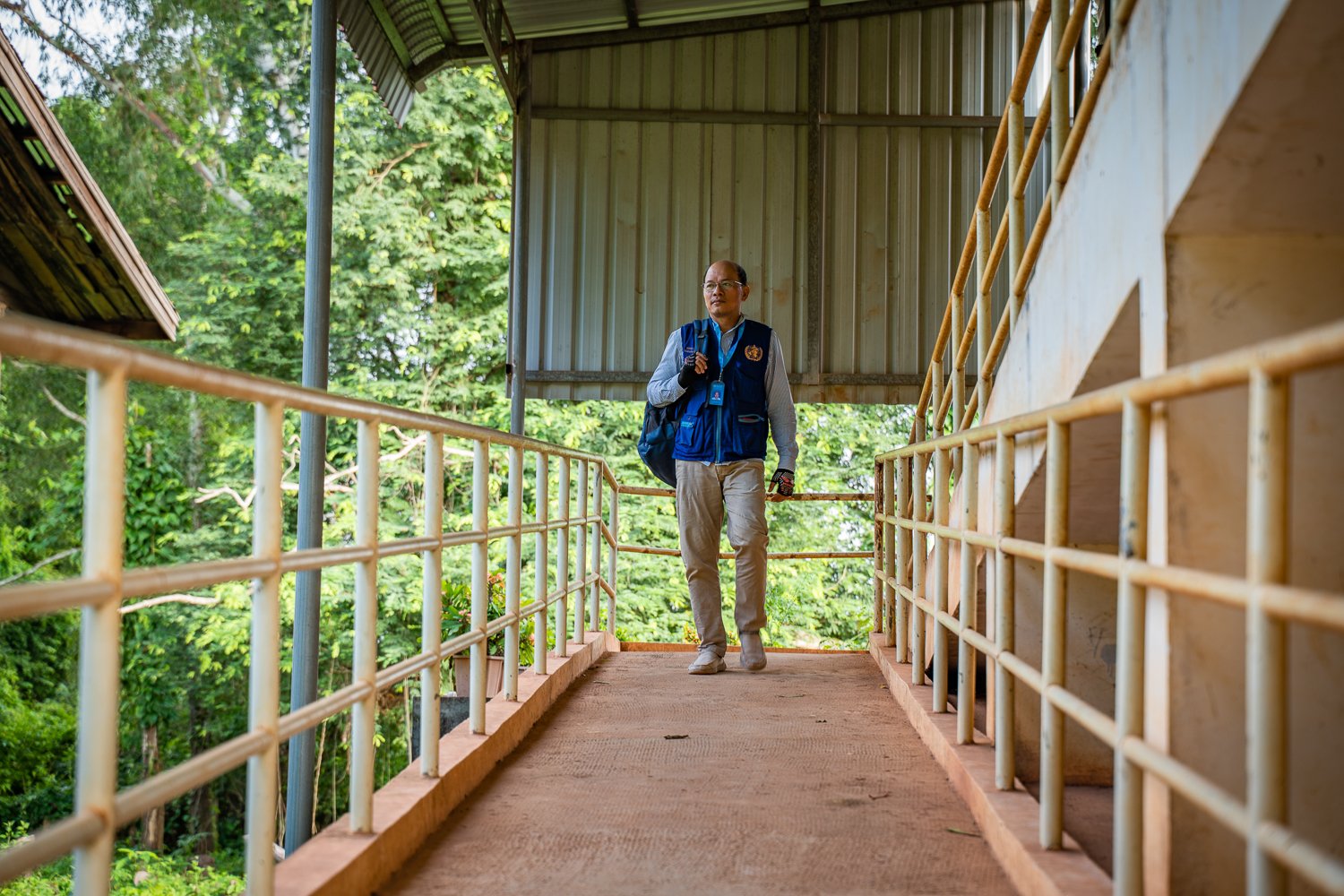
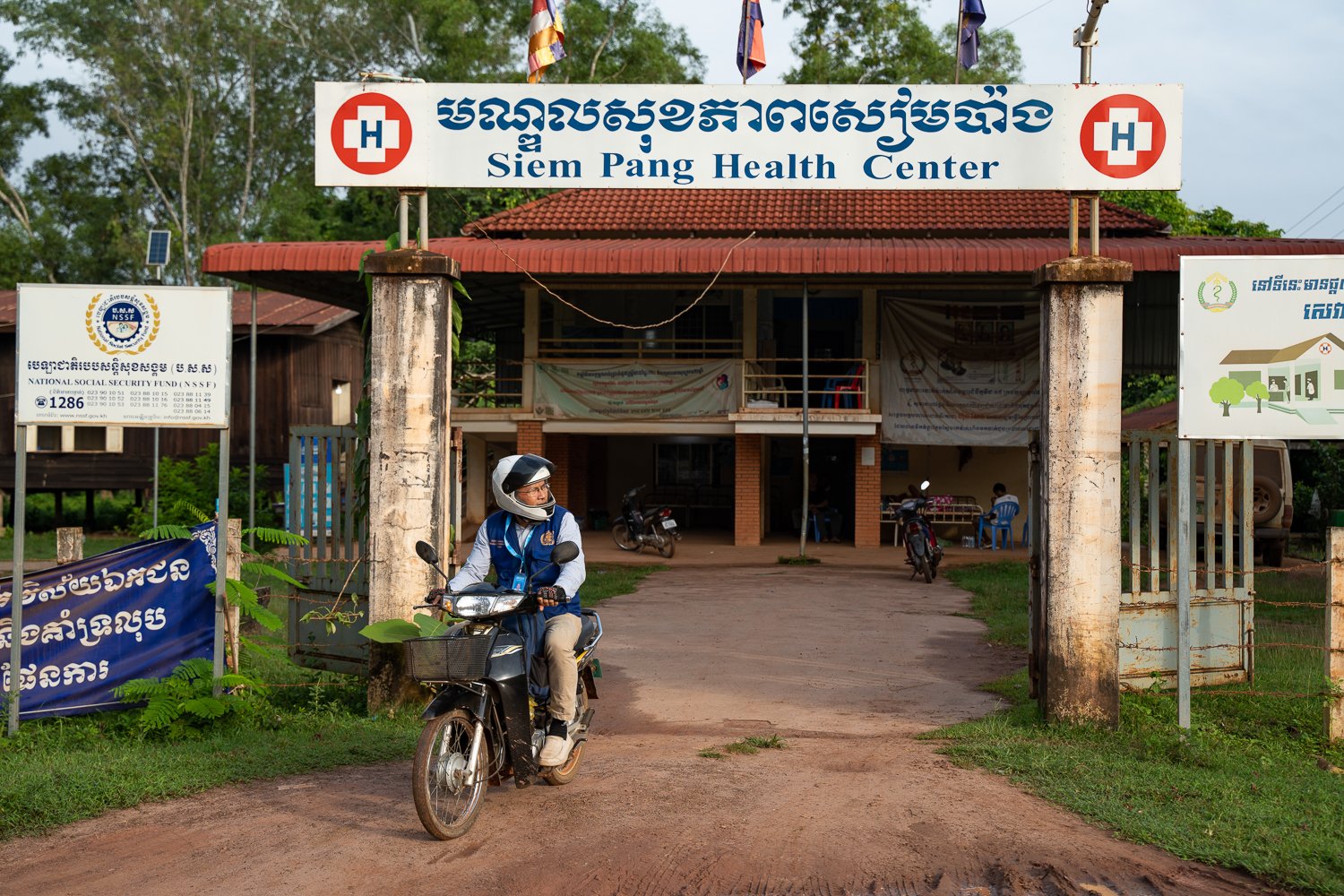
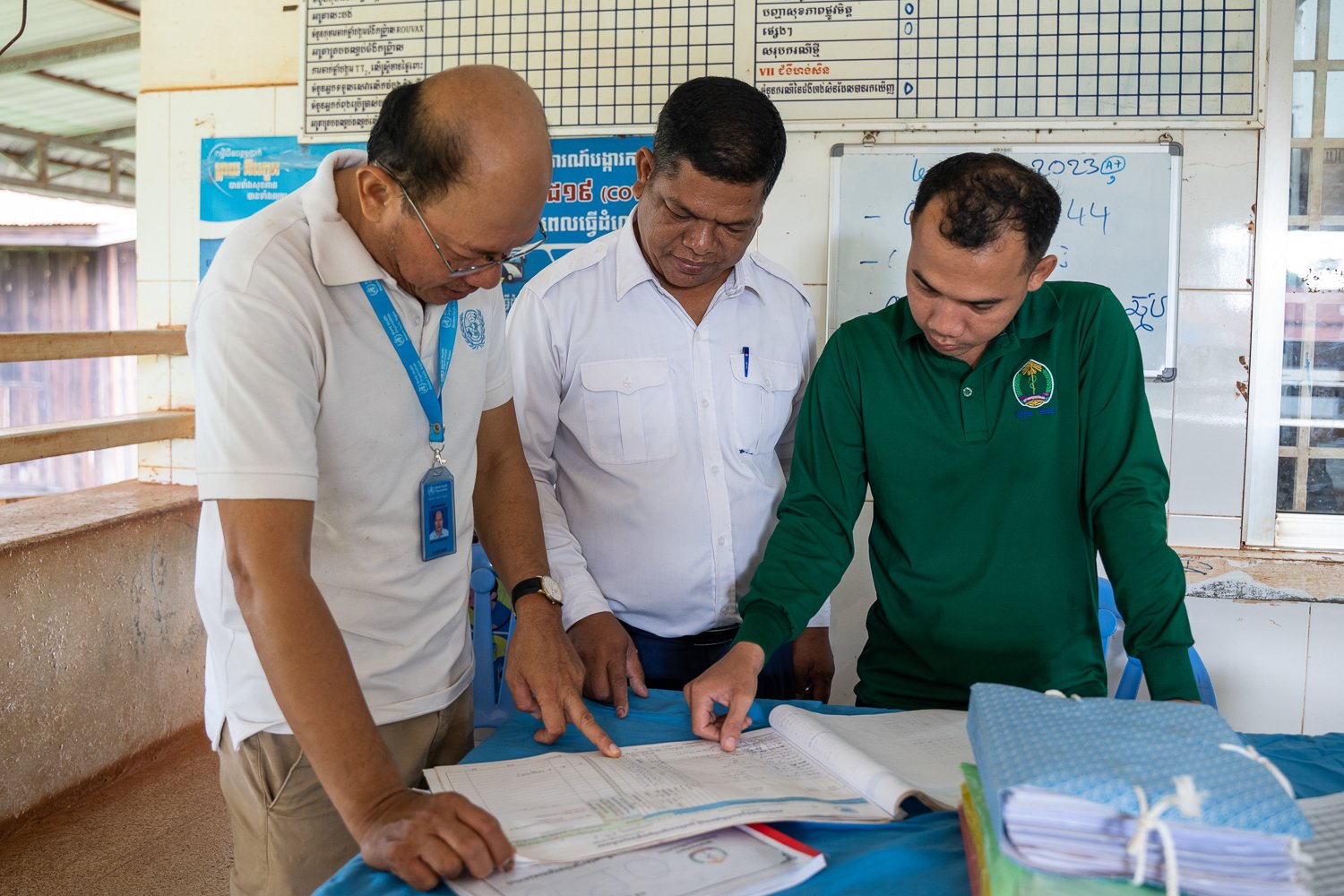
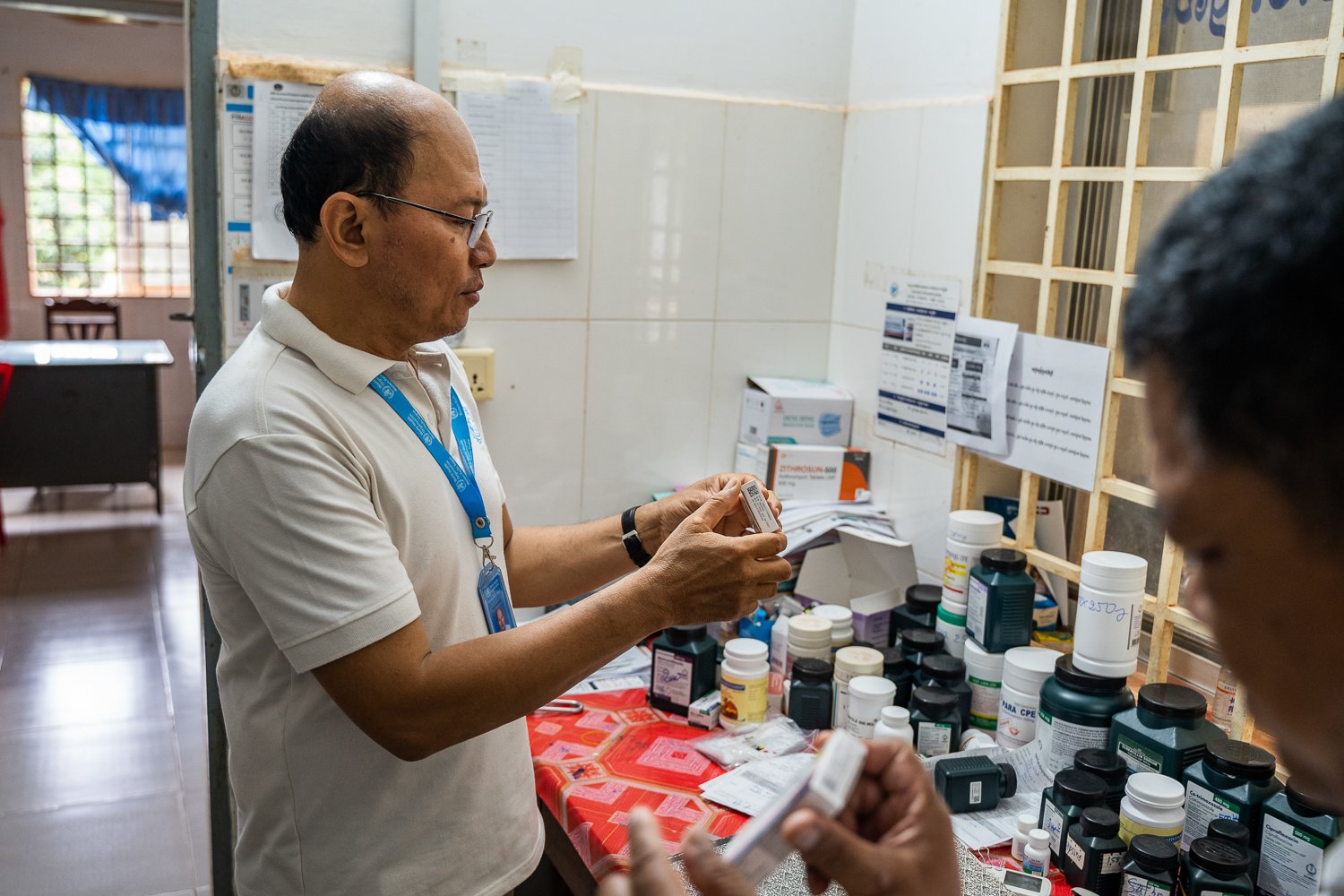
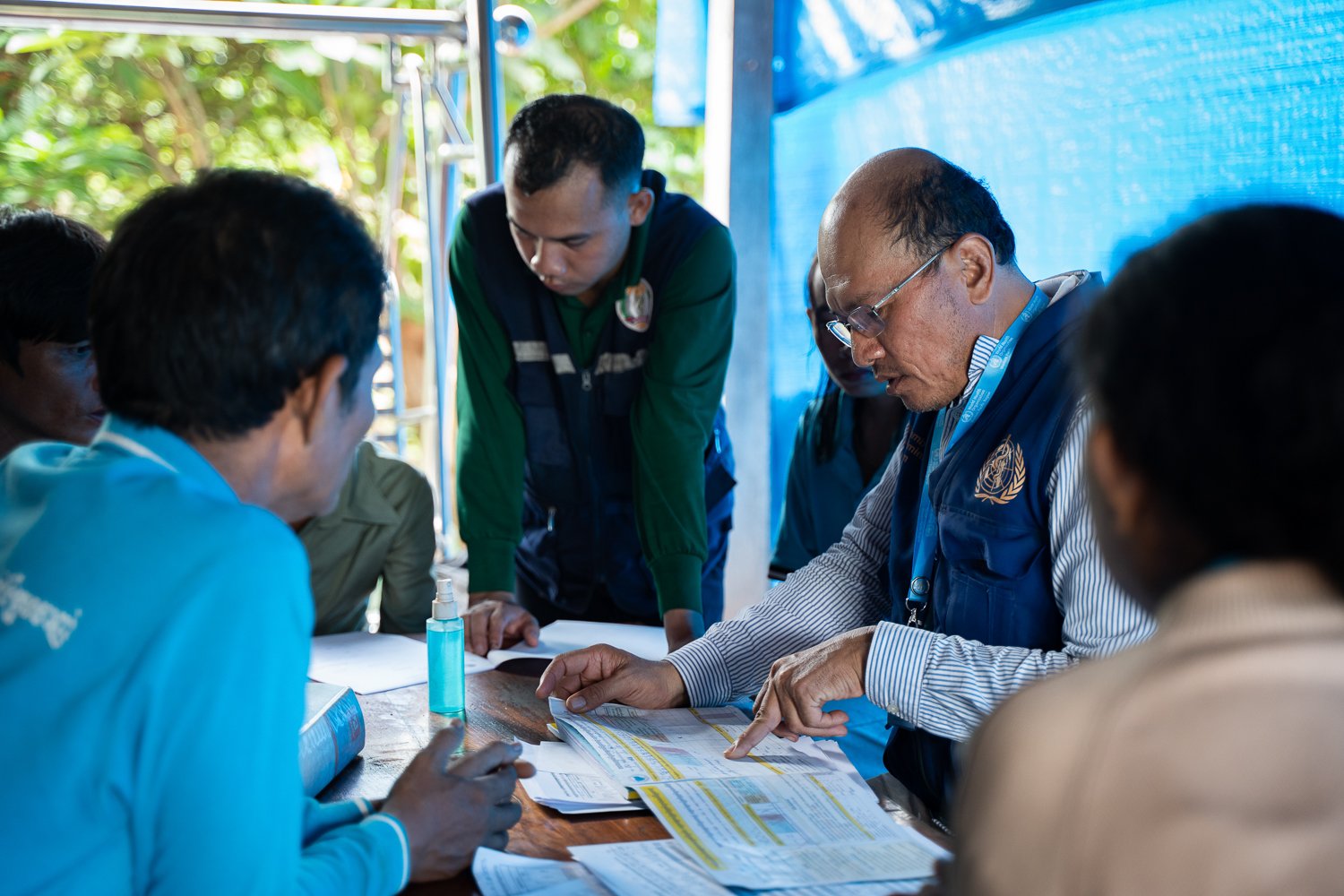
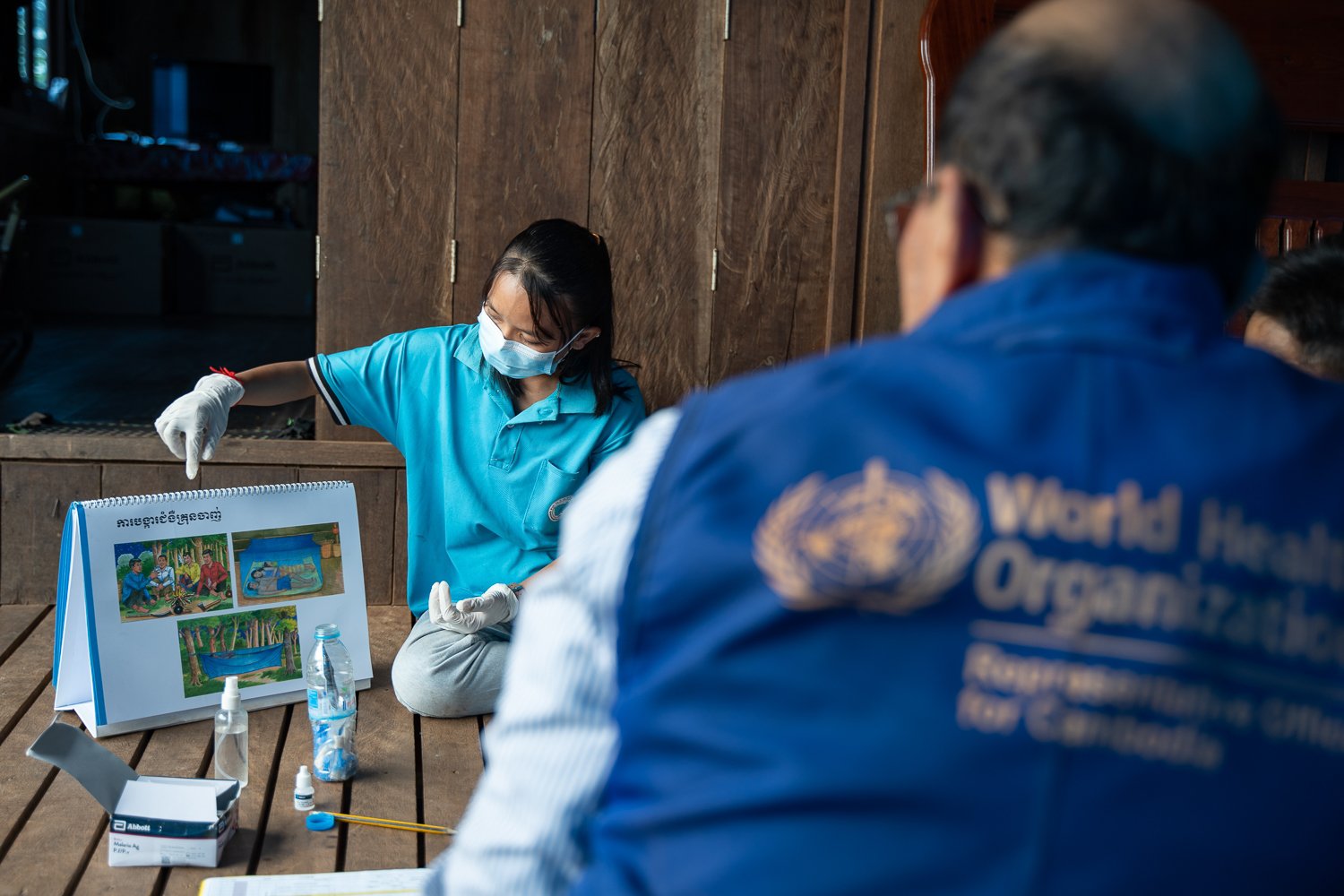
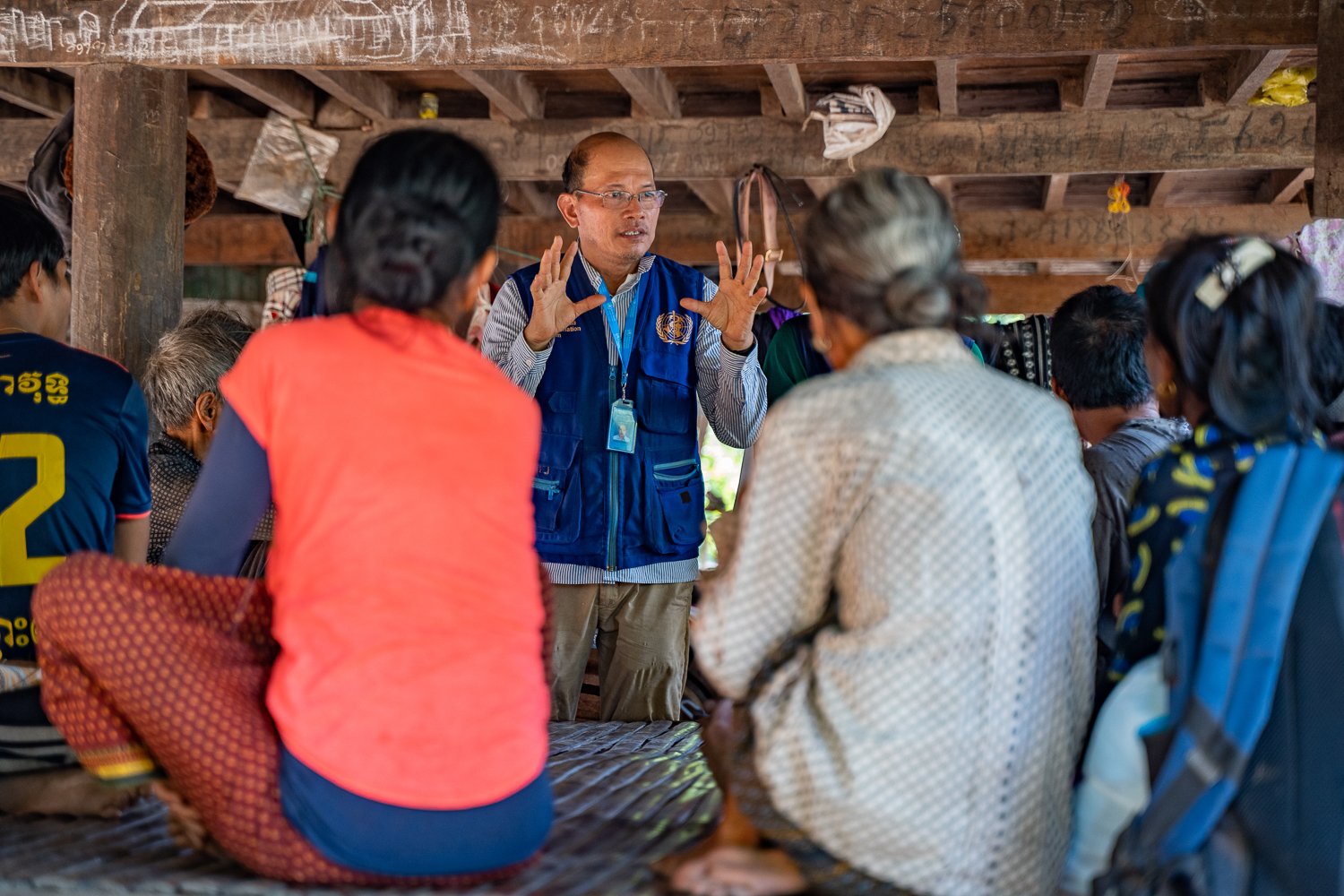
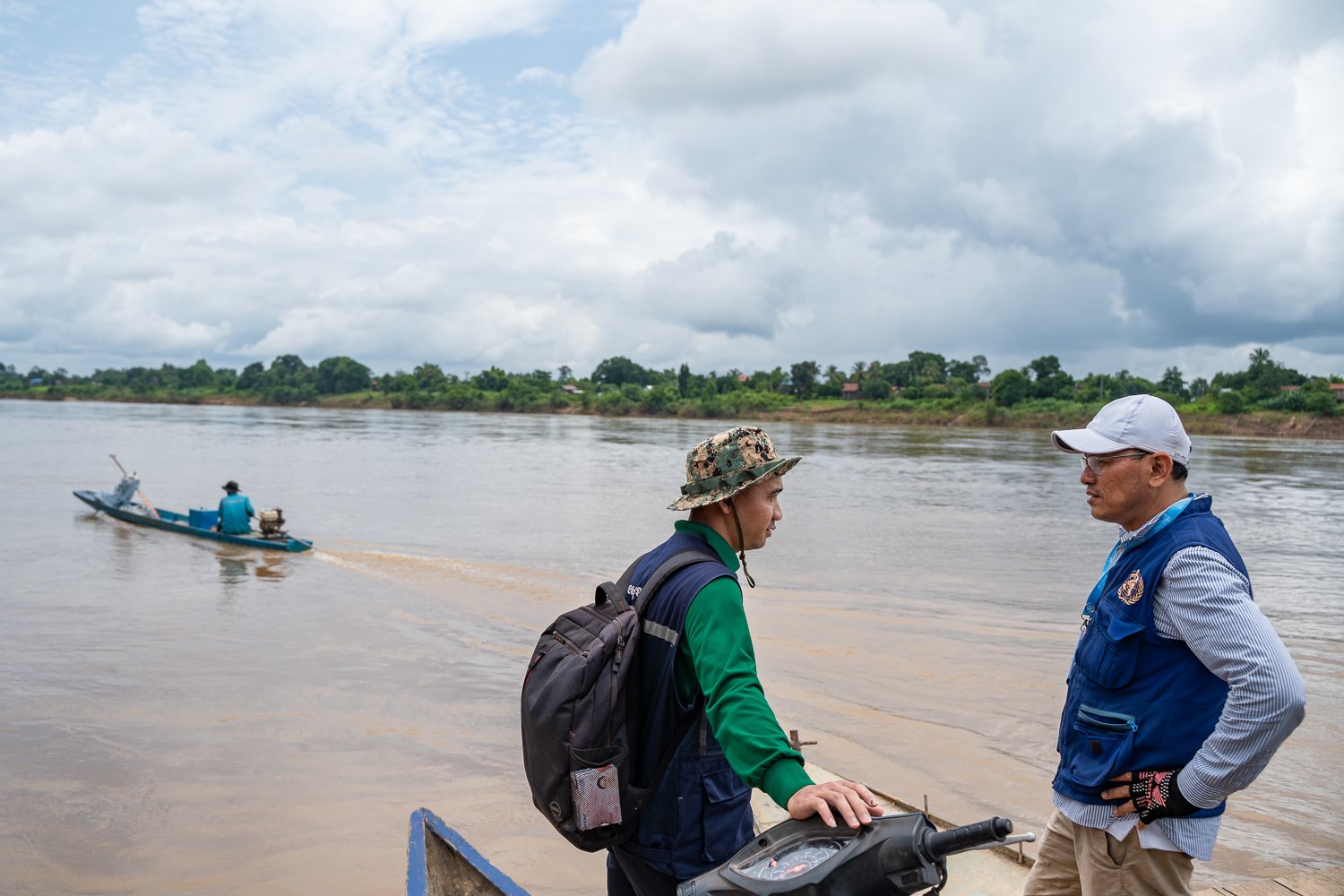
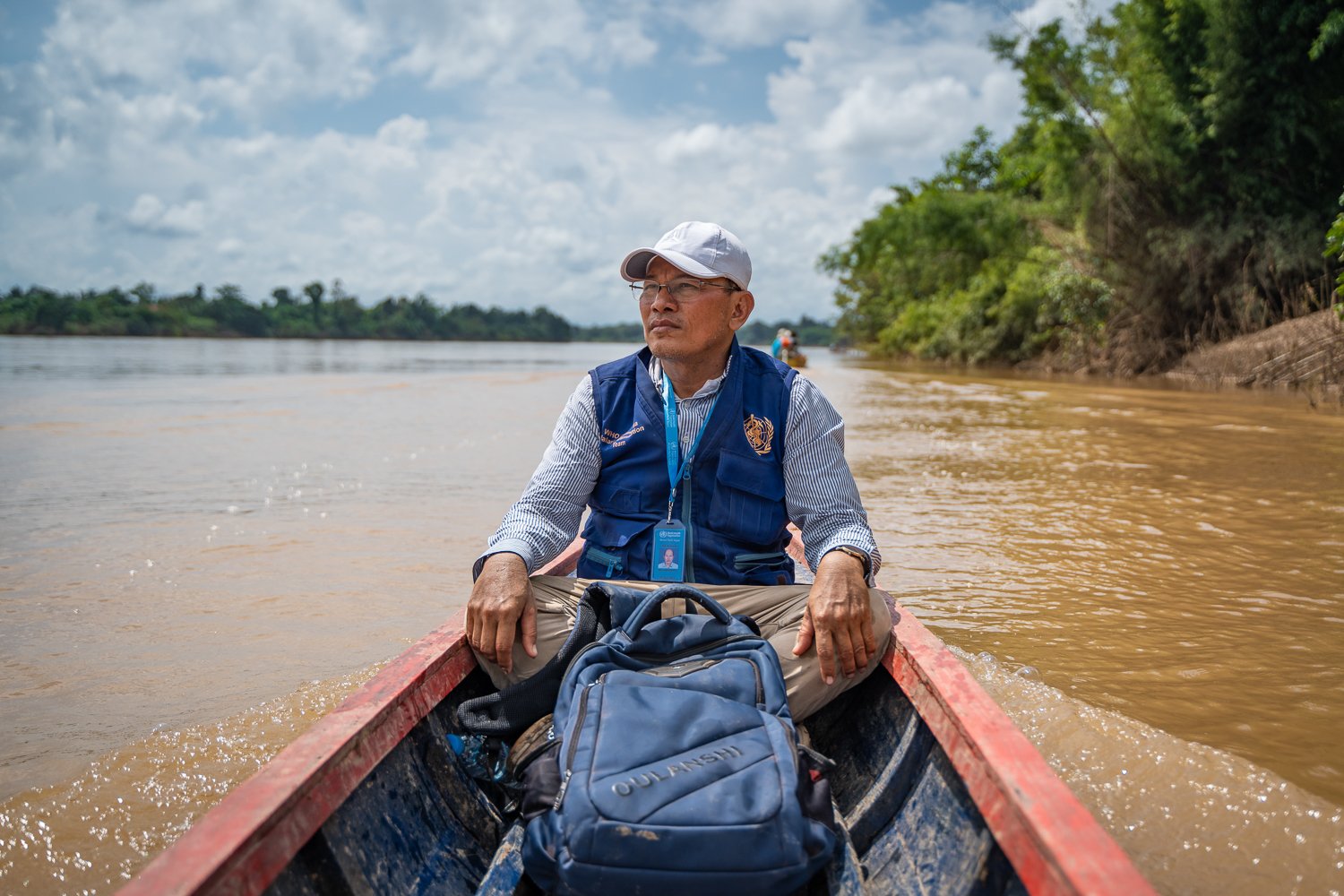
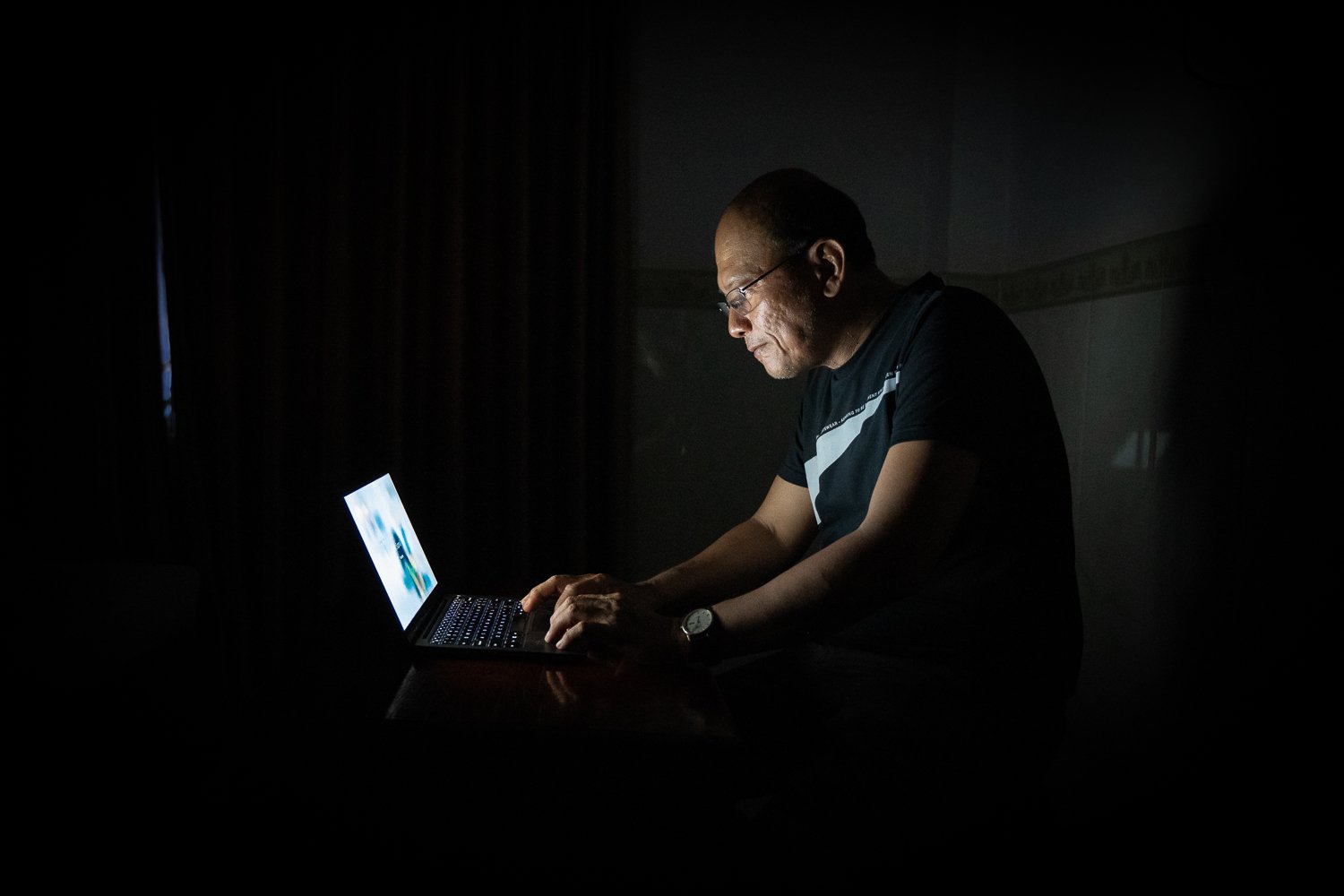
It’s always a pleasure to get of Phnom Penh on assignment and this job was no exception. The brief was to produce a series of 25 photos for the World Health Organization about Sophal for their WHO’s Who series to commemorate their 75th anniversary of providing health for all.
The series was to highlight some of vital work done by some of the key healtcare workers around the world.
Sophal works in malaria prevention and has dedicated himself to preventing malaria in the remote parts of Stung Treng, which are high risk areas.
Sophal was a great choice for the photography series and he is dedicated to his work and he’s very respected within the communities he works in. He led a fundraising campaign when one of his team lost their house through fire. On another occasion, he donated blood to one of his community health workers’ wives after being alerted to the need in the middle of the night.
He’s also studying for a masters in public health in his spare time.
It was a busy day photographing Sophal. We arrived at Siem Pang Health Center early in the morning where Sophal met with the local health centre workers, checked malaria records and did a stock take of the preventative medicine before travelling into the community.
Working in remote villages, we had to take a ferry an ox and cart and small boat to reach the most remote village.
When we got to the community, Sophal checked the records and spoke to his team of community health workers.
From there, his team went into the community to provide training to the village and to check on people who had recently returned from the forest to give them preventative medicine.
The team managed to get all of this done before a storm blew in and the heavens opened.
You can see other examples of my NGO photography for the World Health Organization here and here.
Working as an NGO Photographer Covering Leprosy Elimination for WHO in Cambodia







After a successful collaboration with WHO last year, it was great to be asked to work as a documentary photographer to produce another photo essay as part of their People of the Western Pacific Series.
The brief was to produce 25 photos to tell the story of Visal and the invaluable work that he does in eliminating leprosy from Cambodia.
Visal works for the National Center for Tuberculosis and Leprosy Control, under the Ministry of Health, and has been instrumental in implementing the National Programme for Leprosy Elimination.
Visal is dedicated and passionate about his work and even faced discrimination from his own family. They asked him not to visit his home town before he educated them about how easily treatable the disease is.
I spent a day taking photos of Visal as he worked in the community.
I photographed Visal conducting a training session, speaking to the local health authorities to explain their activities and conducting screening in the community.
At the end of the day, we visited a couple who both had leprosy and suffered disabilities as a result.
Visal’s work has helped to reduce the stigma within their community and he’s helped them to establish a chicken husbandry business that helps them to be financially independent.
Visal has also been instrumental in establishing networks using social media to help identify new cases. This has been very effective, particularly when working with people from remote areas, which is where most new cases are detected.
Leprosy is easily treatable and can be eliminated from Cambodia.
Due to the hard work of people like Visal, there are very few new leprosy cases in Cambodia and by educating people, their work has helped to reduce the stigma.
I wish them luck in achieving their goal.
You can see more of my photography work for WHO here. Please don’t hesitate to get in touch if you have any NGO photography projects you would like to discuss.
Veasna's Story - Working as an NGO videographer on a case study for VSO
This is the second case study I made on assignment as an NGO videographer for VSO.
The video tells the story of Veasna and the positive impact VSO’s RECOVER project has had on her livelihood.
As part of the project, Veasna received agricultural training and financial support to improve her growing facilities.
Held in the community with other vegetable growers the training shows Veasna best practices about what to grow, how to grow it and pest control.
Veasna has used the financial support she received to construct a net house for growing higher value crops.
VSO have also set up agricultural cooperatives. This gives the vegetable growers additional selling power as the cooperative can sell larger quantites direct to market.
They sign contracts to guarantee fair prices for their vegetables and a constant source of income.
A storage facility has also been built in the community so the vegetable growers can store their vegetables to cut down on wastage and to be able to control the sale of the vegetables they grow to the market.
It was great to see the positive relationship Veasna had with Ravuth, the trainer, and how she is looking to expand her growing activities in the future so she can support her young family.
Below is the final video:
And here’s the shorter version I made for social media:
